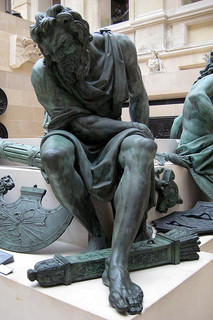10 steps to overcoming failure
by Liz Jansen
It’s a shock. You’ve never had to overcome failure before. It looked so easy. Others do it seemingly with ease, and you assumed that you too would be successful.
Taking on stretch goals teaches you more about yourself than the technical components of the course. For prospective motorcycle riders, that often includes overcoming disappointment, discouragement and limiting beliefs about Self.
 While these illustrations draw from motorcycling , the applications are universal.
While these illustrations draw from motorcycling , the applications are universal.
10 Steps to Overcome Failure
- Confirm your motivation. Make sure this is something you want to do for our own sake. If you’re doing it because someone else wants you to, you think someone else wants you to, or everyone else is doing it, think again. Motorcycling is not for everyone. There’s too much at stake to put yourself in a position that isn’t for you.
- Adjust your self-talk. Look at what you told yourself going into the course. If you told yourself you’ll never pass because, “I fail at everything.” Or “I’m not mechanical.” Or “ I’m too old.” Or whatever other reason you used to set yourself up for failure, you succeeded. Adjust your perspective and create constructive, positive affirmations. Start by getting the word “failure” out of your vocabulary.
- Don’t take it personally. So you didn’t succeed the first time. It’s a hard blow. All it means is that you didn’t pass the test the first time – and there could be a myriad of reasons, not the least of which is your own learning style. Are you going to crumble with defeat or learn the lessons and enjoy what comes after?
- Don’t make assumptions. Calibrating yourself against others is counter-productive. It’s hard when most of the class passes and you don’t, but you don’t know their background, learning styles or relevant experience.
- Accept personal accountability. There’s a tendency to blame others when things go wrong. You try and exonerate yourself because you had a poor instructor, there was something wrong with the motorcycle or another student distracted you. In the end, you were at the controls and weren’t ready to be on the road. Yet.
- Focus on what you accomplished. A LOT of learning happens between the start and end of the course. Look at what you did learn and build on your success.
- Understand what went wrong. If you’ve decided this is something you want to do, work on your areas for improvement. For new riders, it’s usually picking up your speed, training your eyes where to focus, mastering the controls – or getting over test anxiety. All of this is compounded by the beliefs you have about your ability to succeed. (See #2)
- Practice. There’s nothing like saddle time under the tutelage of a qualified instructor to build skills and confidence. Build a solid skill base by taking advantage of practice sessions offered by many programs. Back that up with practice in a vacant parking lot, preferably not alone.
- Enjoy. It’s all part of the adventure, your present and your life’s road. Enjoy the experience, the lessons it teaches you and the people it introduces to your life. Look for the gifts. They’re there.
- Try again. Muster up your courage and go back and do it again. If it’s something you want to do, you will be successful. Many riders, who weren’t successful the first time, have gone on to enjoy tens, even hundreds of thousands of miles of exhilarating motorcycling experiences.
You can accomplish whatever your heart is telling you to do. You are learning the lessons you are meant to learn. As hard as that can be to accept, you will be stronger for the experience, and ready for what you are meant to do. Even ride a motorcycle.
Related Posts: 10 Reasons to Put the Brakes on Learning to Ride a Motorcycle
